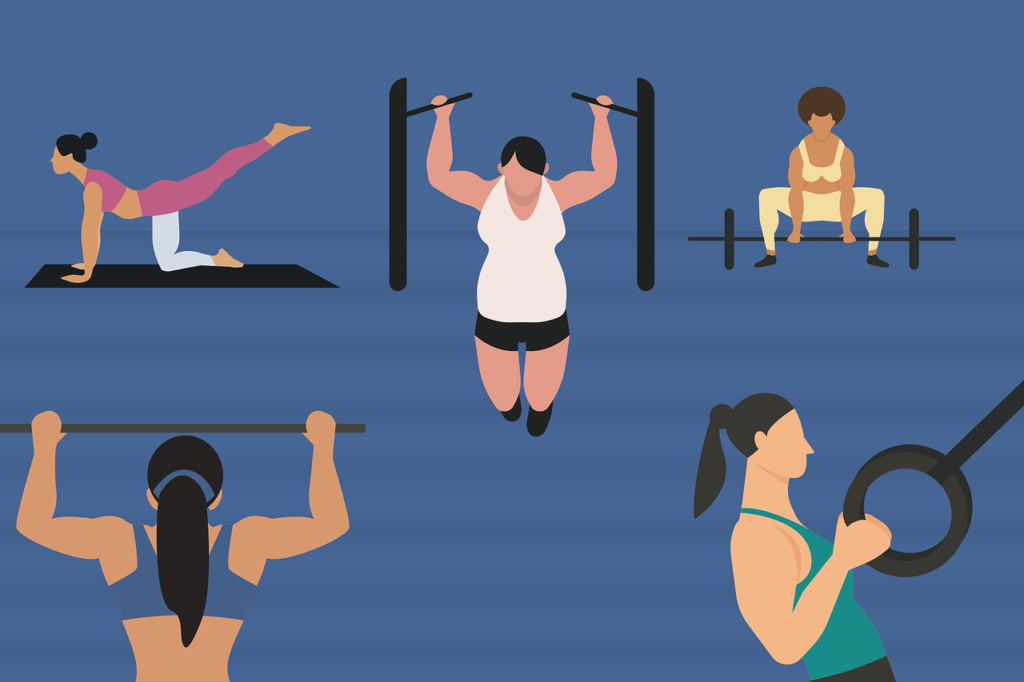Start Your Day with Mindfulness (Mental Health)
Why it Works: Practicing mindfulness, even for just a few minutes in the morning, can set a calm and focused tone for the rest of the day. Mindfulness helps reduce stress and increases self-awareness, allowing us to better manage our emotions.
How to Implement: Begin your morning with deep breathing exercises or a short meditation. Focus on your breathing, observe your thoughts without judgment, and let go of any mental clutter. Apps like Headspace or Calm can provide guided meditation to help get you started.

Prioritize Physical Activity
Why it Works: Physical activity is one of the most effective tools for boosting mood and reducing stress. Exercise releases endorphins, the body’s natural mood-lifters, and improves sleep quality, energy levels, and concentration.
How to Implement: Aim for at least 30 minutes of physical activity each day. This could be a morning jog, a walk during lunch, or an evening yoga session. Even small activities like taking the stairs or stretching can make a difference if a full workout isn’t possible. (Mental Health)


Practice Gratitude
Why it Works: Gratitude shifts focus from negative thoughts to positive ones, improving mood and increasing overall happiness. Studies show that people who regularly practice gratitude report higher levels of optimism and emotional well-being.
How to Implement: Start a gratitude journal and write down three things you’re grateful for each day. Reflecting on these positive aspects, even small ones, helps reframe your mindset and promotes a sense of contentment.


Connect with Loved Ones
Why it Works: Strong social connections are essential for mental health. Spending time with friends and family reduces feelings of isolation and increases feelings of belonging and security.
How to Implement: Schedule regular check-ins with loved ones, whether it’s a quick phone call, a coffee date, or even a virtual hangout. If you’re busy, short messages to let someone know you’re thinking of them can make a positive impact for both of you. (Mental Health)


Limit Screen Time and Practice Digital Detoxing
Why it Works: Excessive screen time, especially on social media, can contribute to anxiety, stress, and comparison-based negativity. Taking breaks from digital devices promotes mental clarity and reduces feelings of overwhelm.
How to Implement: Set specific times of the day to go offline, like during meals or an hour before bed. Consider using apps that monitor and limit screen time, helping you become more mindful about digital usage.


Nourish Your Body with Healthy Foods
Why it Works: What we eat directly impacts our mental health. Foods rich in nutrients, such as fruits, vegetables, lean proteins, and whole grains, can stabilize mood, energy levels, and cognitive function.
How to Implement: Incorporate a variety of nutrient-dense foods into your meals. Aim for balanced portions of protein, healthy fats, and complex carbohydrates to maintain consistent energy. Drinking enough water is also crucial for mental clarity.


Get Quality Sleep
Why it Works: Poor sleep can significantly impact mood, memory, and stress levels. Quality sleep allows the brain to rest and rejuvenate, leading to better emotional regulation and focus.
How to Implement: Aim for 7-8 hours of sleep each night. Create a bedtime routine by going to bed at the same time each night, avoiding screens before bed, and keeping the room dark and cool. Relaxation techniques, like reading or listening to soft music, can also help you wind down.


Engage in Activities You Enjoy
Why it Works: Engaging in hobbies and activities we love is an excellent way to reduce stress and increase happiness. Enjoyable activities can act as a reset, boosting mood and providing a healthy escape from daily responsibilities.
How to Implement: Carve out time each week to pursue hobbies or activities that make you happy, whether that’s painting, cooking, reading, or gardening. These activities can help recharge and bring a sense of fulfillment.

Challenge Negative Thoughts
Why it Works: Negative thought patterns can drain mental energy and lead to feelings of anxiety and sadness. Learning to challenge and reframe these thoughts is crucial for better mental health.
How to Implement: Practice self-compassion and challenge negative self-talk. For instance, if you catch yourself thinking, “I’m not good enough,” try to reframe it as, “I’m doing my best, and that’s enough.” This habit strengthens a positive and balanced outlook.
Why is mental health management important?
Mental health management is essential because it directly impacts our overall well-being, happiness, and ability to cope with stress. Good mental health supports productivity, emotional resilience, and positive relationships.
How long does it take to see results from daily mental health habits?
Results vary from person to person, but many people notice positive changes in mood and stress levels within a few weeks of consistent practice. Developing these habits requires patience, but the long-term benefits are well worth the effort.
Can these habits replace professional mental health treatment?
No, these daily habits are meant to support mental well-being but do not replace professional help. If you’re dealing with serious mental health challenges, it’s essential to consult with a mental health professional for guidance and support.
What if I don’t have time to practice all these habits every day?
You don’t need to incorporate every habit at once. Start with one or two that resonate with you and gradually add more as they become part of your routine. Even small steps can make a big difference in how you feel over time.
How does exercise help with mental health?
Exercise releases endorphins, which are natural mood-lifters. Regular physical activity also improves sleep, energy levels, and stress resilience, making it one of the most effective tools for mental health management.
Why is screen time a concern for mental health?
Excessive screen time, especially on social media, can lead to increased anxiety, stress, and negative self-comparisons. Limiting screen time and taking breaks allows for mental clarity, reduced overwhelm, and more focus on real-life connections.
How can mindfulness improve mental health?
Mindfulness helps increase self-awareness, reduce stress, and manage emotions better. It allows you to focus on the present moment, reducing anxiety about the past or future, which can improve overall well-being.
Is it necessary to follow a specific diet for mental health?
A balanced diet with plenty of fruits, vegetables, lean proteins, and whole grains can positively impact mental health. Certain nutrients, like omega-3 fatty acids, vitamins, and minerals, support brain function and mood stability.
What should I do if I miss a day or struggle to keep up with these habits?
It’s normal to miss a day or feel overwhelmed at times. Rather than being hard on yourself, focus on consistency over perfection. Simply return to the habit the next day or adjust it to be more manageable for you.
Can these habits help with specific issues like anxiety or depression?
These habits can provide support for managing symptoms of anxiety and depression, but they are not a cure. Many people find these practices helpful for reducing stress and boosting mood, but they are best used alongside professional treatment if you are dealing with severe symptoms.



Pingback: Understanding the Hidden Struggles of Depression 2025
o545dl
qi4p5m
Very well written post. It will be helpful to everyone who employess it, including myself. Keep up the good work – can’r wait to read more posts.
My spouse and I stumbled over here different page and thought I might as well check things out. I like what I see so i am just following you. Look forward to checking out your web page yet again.